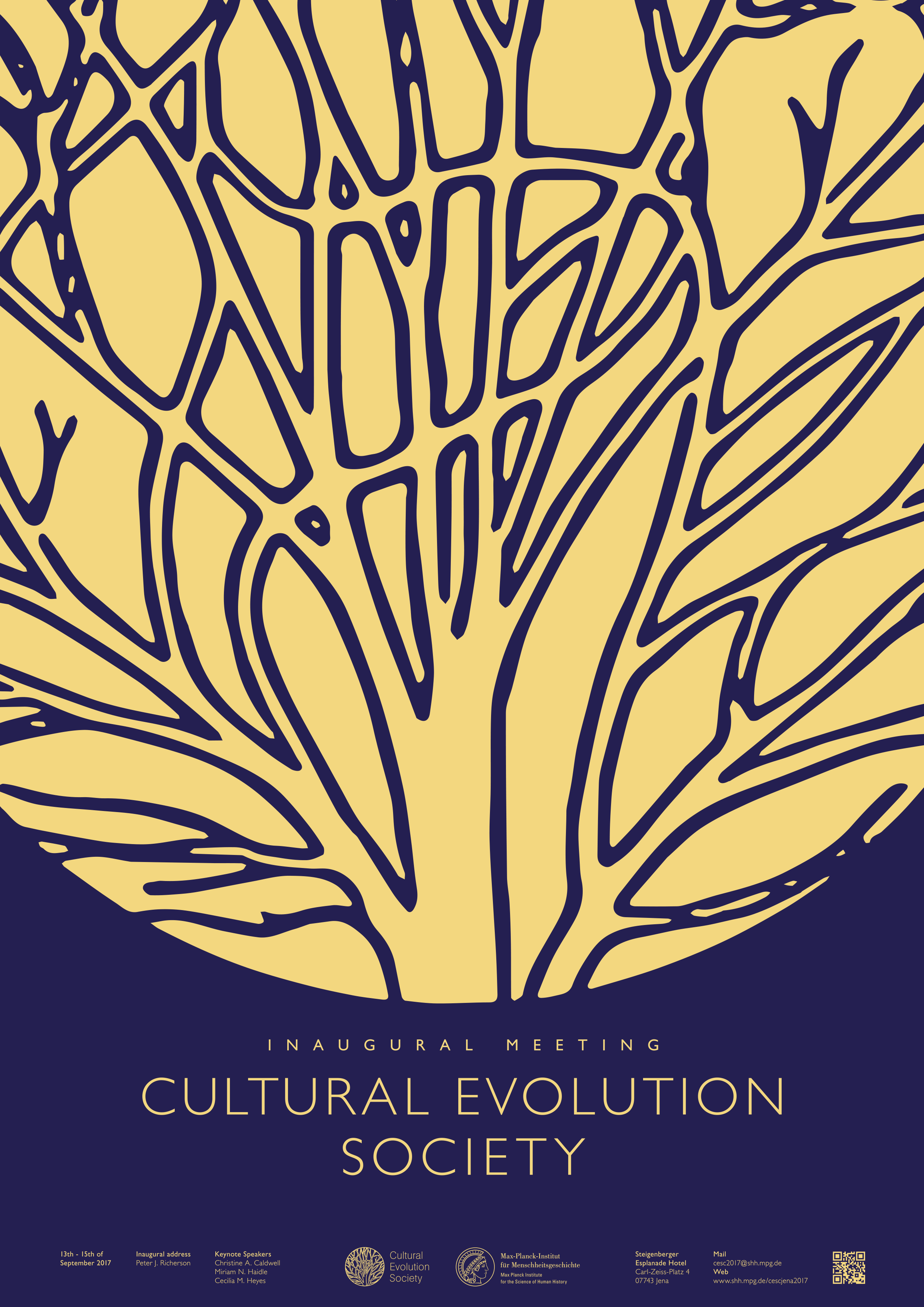I chaired a themed session on “Cultural Evolution and Economics” at the Inaugural Cultural Evolution Society Conference. Speakers including myself, my student collaborator Xueheng Li, and Heidi Colleran. My PhD student, Ryutaro Uchiyama presented some new analyses on the Cultural Brain Hypothesis in a parallel session.
I presented a the “Cultural Evolution of Economics” with some illustrations on how cultural evolution can help economists and how economists can help those interested in cultural evolution. To illustrate this, I presented some recent and upcoming work on cooperation, corruption, democracy and economic growth. Abstract below:
Homo Economicus are extinct or on the verge of extinction, or so it would appear from outside economics. But within economics, reports of their death have been greatly exaggerated. Economicus’ persist, in part because alternative theories of human behavior are not readily integrated into existing economic approaches. To paraphrase Buckminster Fuller, criticism is not sufficient—you need to build a better model. I’ll discuss collaborations at the London School of Economics that are attempting to build that better model by integrating cultural evolutionary theory into economics. A cultural evolutionary approach seats corruption as a special case of cooperation, offering new means to understand and combat it (Muthukrishna, et al., 2017, “Corrupting Cooperation and How Anti-Corruption Strategies May Backfire”, Nature Human Behavior). A cultural evolutionary approach helps identify the invisible cultural pillars that support successful economic and democratic institutions (Stimmler & Muthukrishna, 2017, “When Cooperation Promotes Corruption and Undermines Democracy”, Working Paper; Muthukrishna, et al., in prep, “A WEIRD scale of cultural distance”). A cultural evolutionary approach reveals the relationship between economic growth, inequality, tolerance for inequality, and widespread beliefs—like “evil eye” and witchcraft—that have economic implications (Li & Muthukrishna, 2017, “The coevolution of Economic Growth, Inequality, Tolerance for Inequality, and Belief in Evil Eye”, Working Paper). These related studies reveal how cultural evolution may offer new approaches to age old problems, but also how the economic toolkit may be deployed to understand culturally evolved beliefs and behaviors.
Li presented an economic model and corresponding experimental test on the co-evolution of economic growth, inequality, tolerance for inequality and the widespread belief in “evil eye“.
All together a lot of fun and excellent talks by lots of familiar names and even more familiar faces. Many thanks to the Max Planck Institute for the Science of Human History, Russell Gray and the rest of the organizing committee: Andy Whiten, Fiona Jordan , Joe Brewer, Michele Gelfand, Michelle Kline, and Olivier Morin.













